Encountering a raccoon in your yard can be an unexpected surprise. These nocturnal creatures might look cute and fluffy, but beneath their bandit-like masks, they possess a savvy intelligence and the ability to surprise you in more ways than one. If you find yourself face-to-face with one, here are 13 reasons to respect their space and let them do their thing.
1. Their Relaxation Feels Like Work
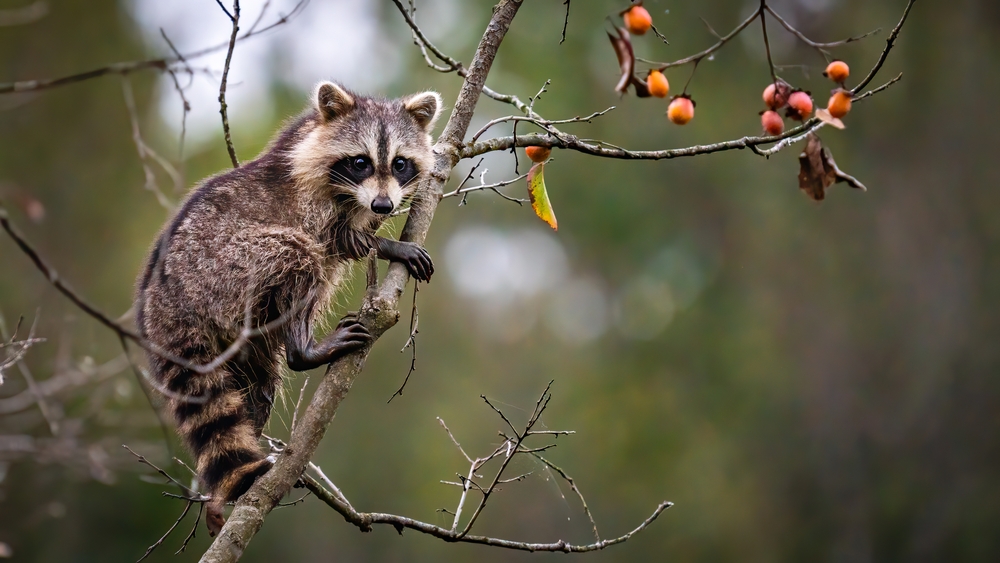
Raccoons have a knack for turning leisure into an elaborate production. Picture this: a raccoon lounging on a tree branch, meticulously cleaning its paws, or rummaging through a pile of leaves. It’s not just chilling; it’s multitasking. When they relax, they’re still on high alert, surveying their surroundings for potential threats or food sources. This blend of relaxation and vigilance makes them fascinating to watch, but it also means they’re not to be trifled with.
Messing with a raccoon during its downtime could trigger its survival instincts. They’re wired to protect themselves and their territory. So, when you see one seemingly at ease, remember it’s not off-guard. Disturbing a raccoon’s chill time can quickly escalate the situation from peaceful to problematic. It’s best to appreciate their industrious relaxation from a safe distance.
2. They’re Smarter Than You Think
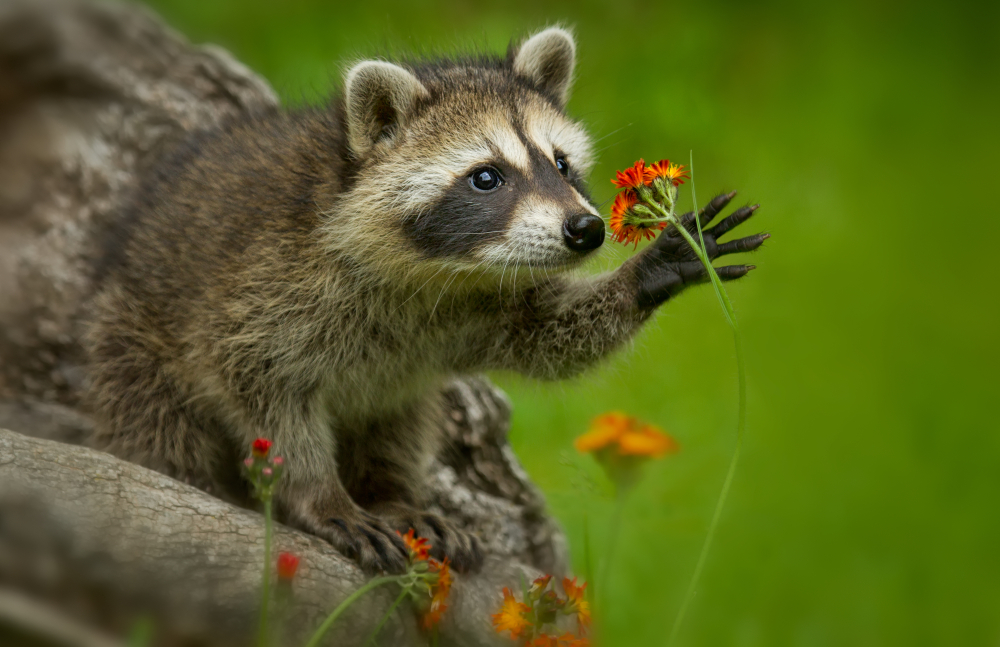
Raccoons are incredibly intelligent creatures. Their brains are keenly developed for problem-solving, and they have the equivalent intelligence of a small primate. In the wild, they employ complex strategies for finding food, avoiding danger, and even communicating with each other. Their cognitive prowess extends to urban environments, where they’ve mastered the art of navigating human landscapes.
Underestimating a raccoon’s intelligence can lead to all sorts of unexpected challenges. They can open jars, unlatch pet doors, and even figure out how to outwit simple traps. Their sharp memory helps them remember locations of food sources and potential dangers. So, if you think you can easily outsmart a raccoon, think again. These critters are masters of adaptation and innovation.
3. Their Dexterity Is Unmatched
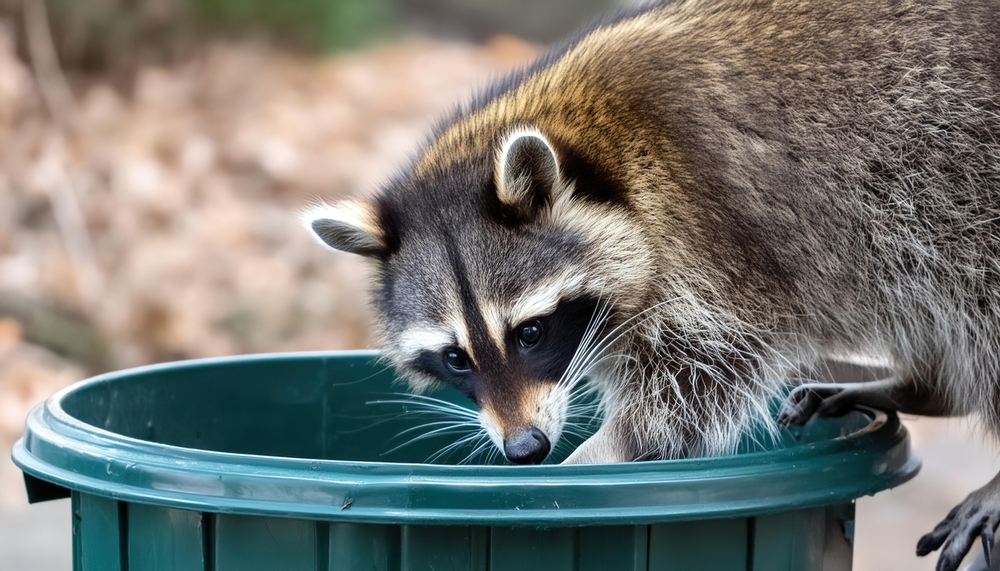
With their dexterous paws, raccoons are like the acrobats of the animal kingdom. They have an impressive range of motion in their digits, allowing them to manipulate objects with surprising precision. This dexterity is one of the reasons they’re so successful in both urban and wild environments. From opening trash cans to managing intricate tasks, they can handle it all.
Their nimble paws mean that they can get into places you’d never expect. It also means that if you try to corner or catch one, they have a vast array of escape tactics at their disposal. They can climb, squeeze, dig, and evade with astonishing skill. Respect their dexterity and give them the space they need to move about freely.
4. They’re Not Afraid to Stand Their Ground
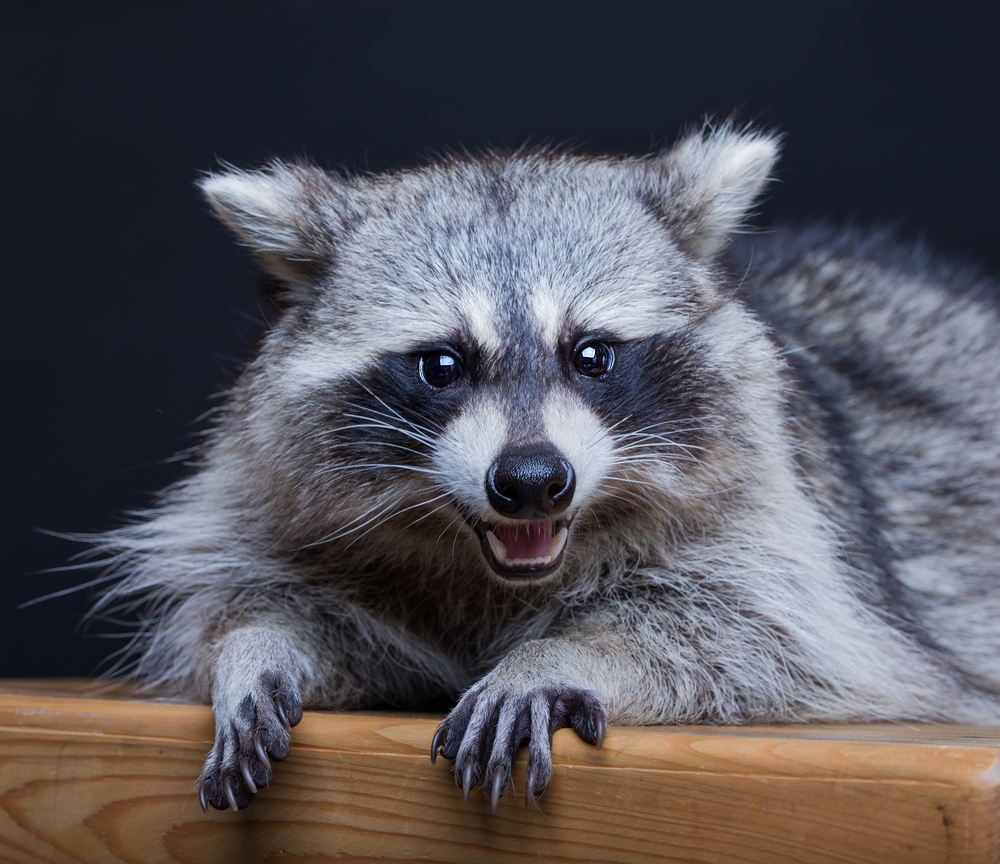 provided by Shutterstock
provided by Shutterstock
When push comes to shove, raccoons are not known for backing down. They can be fiercely territorial, especially if they feel threatened or cornered. Raccoons will hiss, growl, and even charge if they believe they are in danger. This boldness is part of their survival strategy and allows them to fend off predators and protect their young.
Approaching a raccoon with the assumption that it will flee is a mistake. While they may retreat if given the chance, they are also equipped and willing to defend themselves if necessary. This steadfast nature is something to be respected. It’s a reminder that while raccoons may seem cute and harmless, they are still wild animals with instincts to match.
5. They Carry a Reputation for Mischief
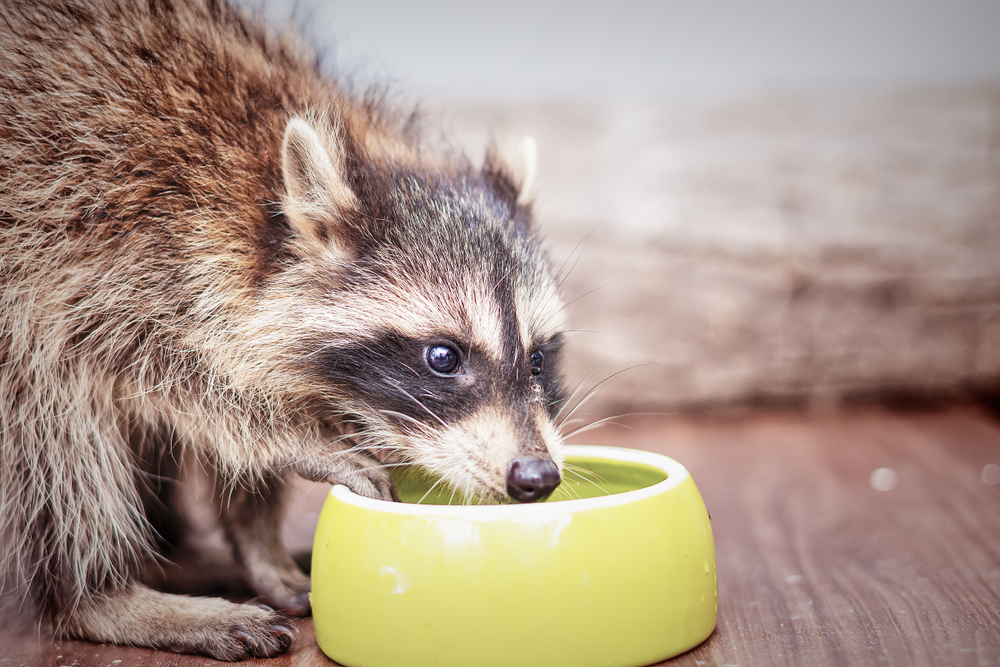
Raccoons have earned their reputation as the mischievous bandits of the animal world. They’re notorious for raiding garbage cans, stealing pet food, and making off with anything they find intriguing. This playful, curious behavior can be amusing from afar, but it becomes less charming when they start making a mess of your carefully planned garden.
Their penchant for mischief means that they’re always on the lookout for the next interesting activity. This curiosity is a double-edged sword: it makes them excellent scavengers but also leads them into situations that can cause havoc in human-dominated areas. Their antics can be hard to control once they set their sights on something. The best course of action is usually to secure your property and let them wander on to less troublesome pastures.
6. Their Communication Skills Are Top-Notch
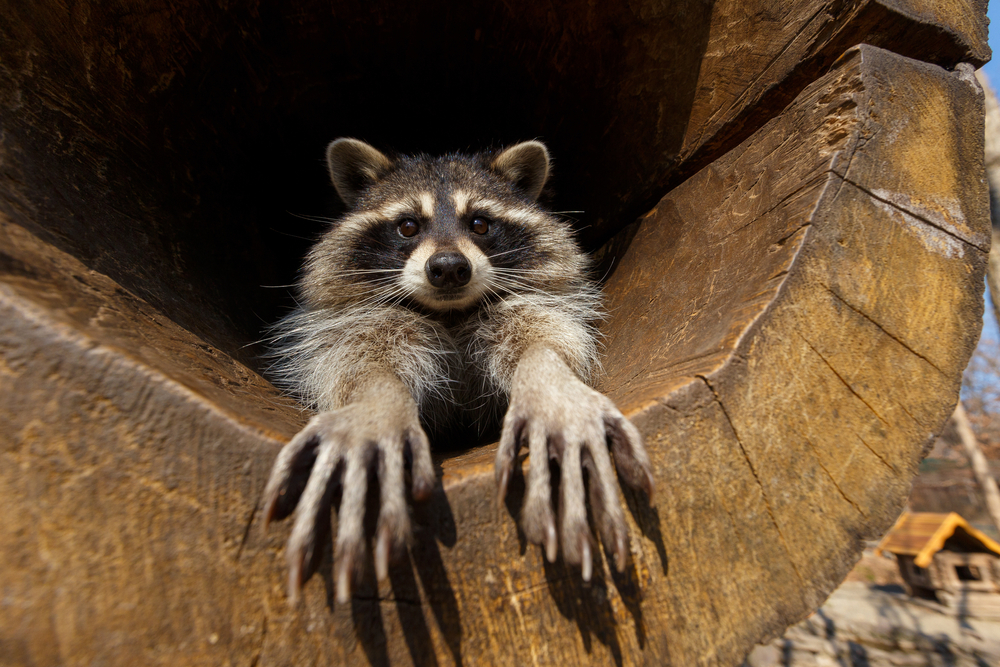
Raccoons use a complex array of vocalizations, body language, and even facial expressions to communicate with each other. They can express a wide range of emotions, from curiosity to aggression. This intricate communication system helps them coordinate with other raccoons, especially when food is involved or when warning each other of potential threats.
Understanding their communication can help you gauge a raccoon’s mood or intentions. If you hear them chattering or growling, it’s a good sign they’re feeling threatened or defensive. Responding appropriately to their signals—by giving them space, for instance—can prevent unnecessary conflict. Appreciating their social complexity is another reason to observe from a distance rather than engage.
7. They Can Carry Diseases
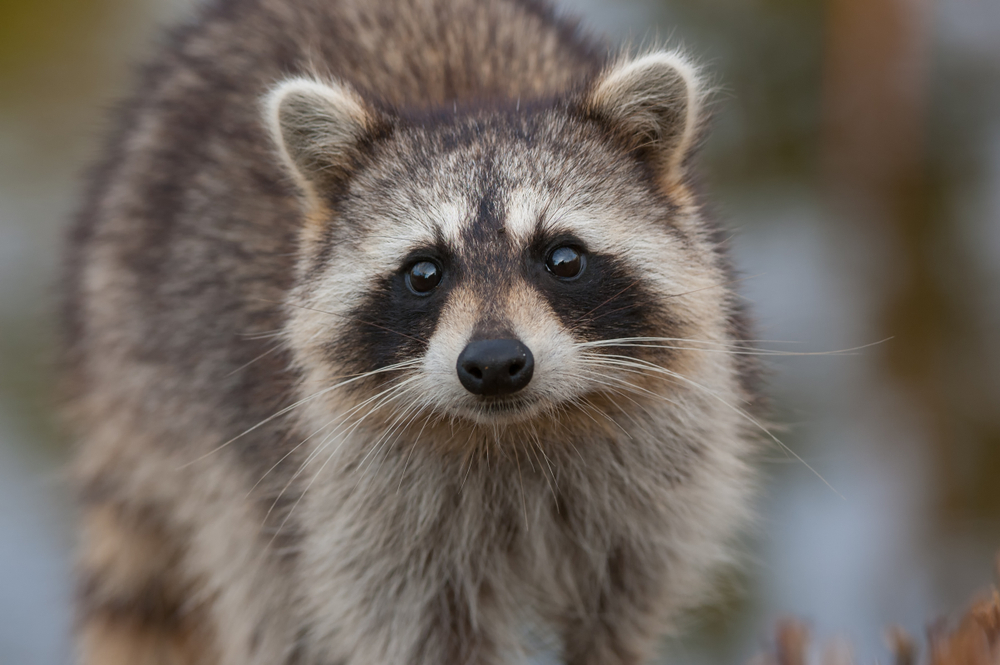
While raccoons are captivating creatures, it’s essential to remember they can be carriers of diseases. Rabies is the most well-known, but they can also carry raccoon roundworms and other parasites. These diseases can be transmitted to humans and pets, making it crucial to avoid direct contact with them or their droppings.
Keeping a safe distance from raccoons is not just about respecting their space but also protecting your health. Ensuring pets are up-to-date on vaccinations and practicing good hygiene can minimize risks. If you find a raccoon in your yard, it’s best to resist the urge to interact closely. Instead, observe from afar and let them move on naturally.
8. Their Nightlife Is Legendary
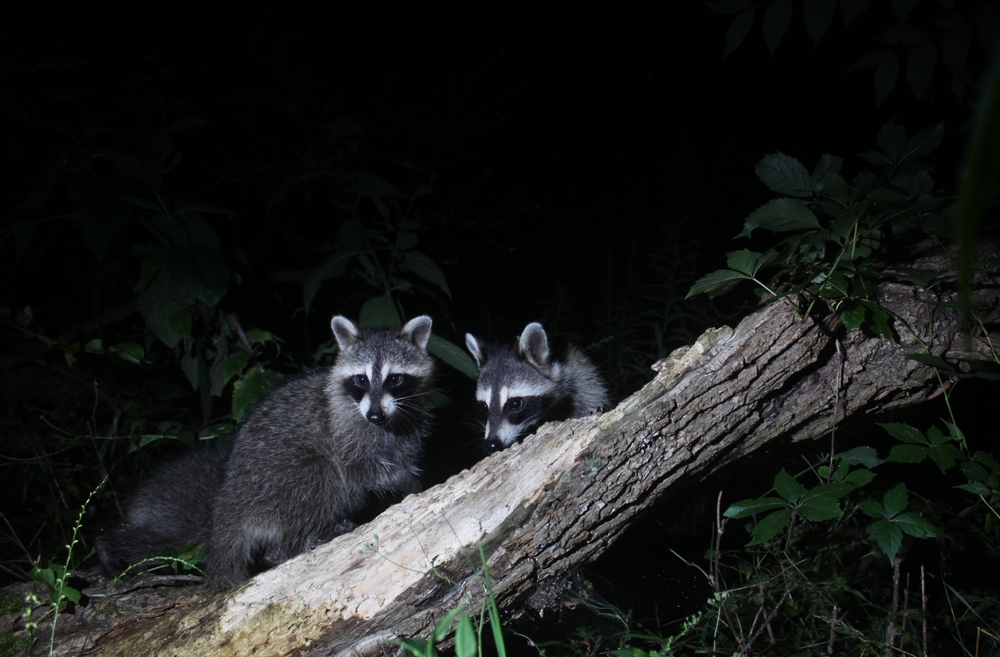
Raccoons are nocturnal, thriving in the cover of darkness. While most people are winding down for the evening, raccoons are just getting started. Their nighttime activities include foraging for food, exploring new territories, and socializing with their fellow raccoons. This makes them well-suited to adapting to both natural and urban environments.
Their night-owl nature means you’re more likely to encounter them during the twilight hours. If you spot one in your yard at night, remember that this is their prime time. Respecting their nocturnal lifestyle and minimizing disturbances during these hours is wise. It helps maintain the balance between human living spaces and raccoon habitats.
9. They’re Masters of Adaptation

Raccoons are incredibly adaptable, able to thrive in a variety of environments. From dense forests to bustling cities, they find ways to make themselves at home. They have the ability to modify their behavior and diet based on their surroundings, making them one of the most versatile mammals around.
This adaptability is a testament to their resilience and intelligence. They can flourish where other animals might struggle, finding new food sources and shelter where none seem apparent. Encountering a raccoon in your yard is a reminder of their remarkable ability to coexist with humans. Respecting their adaptability means recognizing their role in the ecosystem and our shared spaces.
10. Their Memory Rivals an Elephant’s

Raccoons have an impressive memory, allowing them to remember the locations of food sources and potential threats. This cognitive ability helps them survive in both urban and wild environments. They can recall complex tasks and repeat them successfully, demonstrating their advanced problem-solving skills.
Their memory prowess means they can learn from past interactions with humans, adapting their behavior accordingly. If you make your yard an inhospitable place for them, they’re likely to remember and avoid it in the future. On the flip side, if they find an easy meal, they’ll be back. Understanding and respecting their memory can help create a peaceful coexistence.
11. They’re Family-Oriented
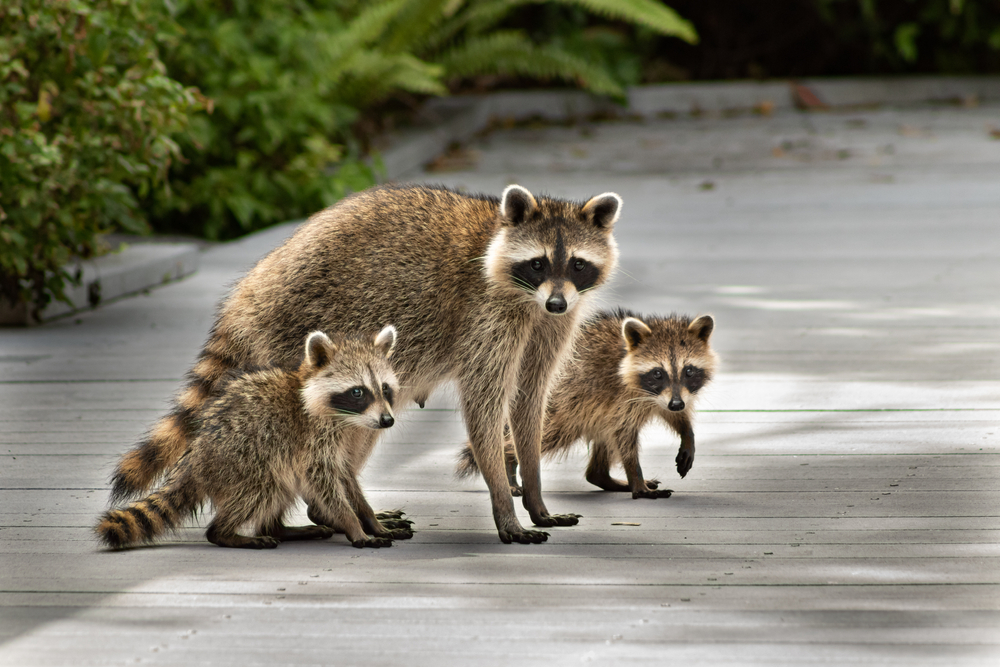
Raccoons are social animals, often traveling in family groups. A mother raccoon is fiercely protective of her cubs, ensuring their safety and teaching them vital survival skills. This familial bond is crucial for their development and can make them more assertive in defending their territory.
Encountering a raccoon family in your yard is a reminder of their strong social structure. Attempting to separate or harm them can provoke a defensive reaction, especially from a mother. Giving them space to move on with their family is the best course of action. Appreciating their family-oriented nature highlights the importance of treating all wildlife with care.
12. They’re Curious About Everything
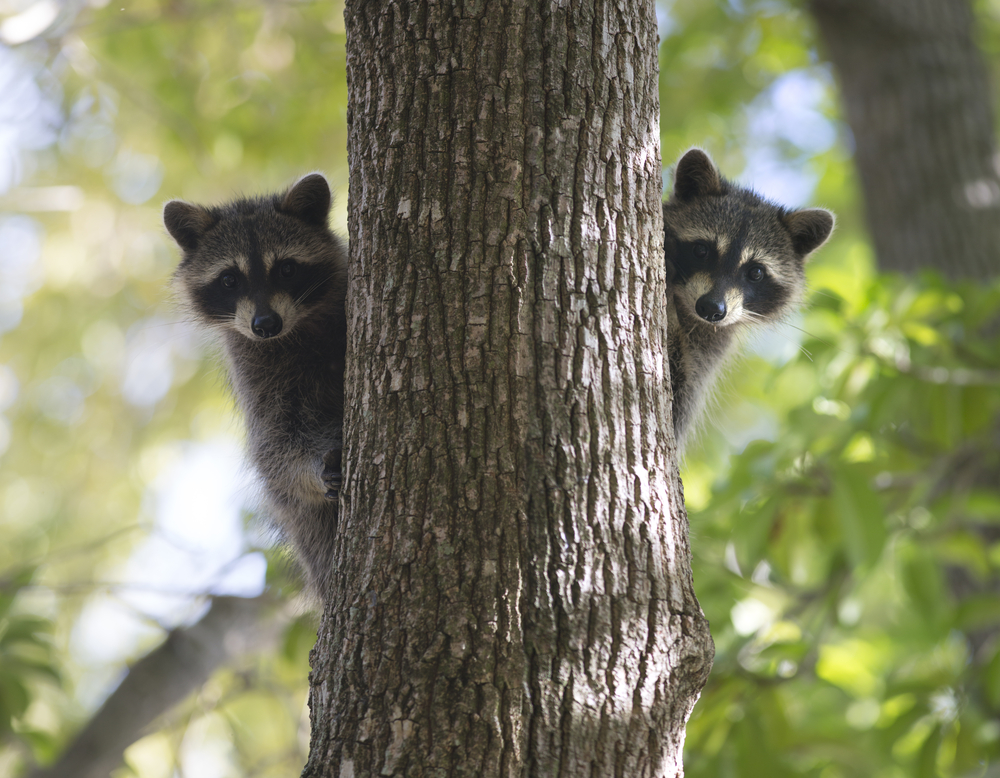
Raccoons are naturally curious, exploring their surroundings with an insatiable desire to learn. This curious nature leads them to investigate everything they encounter, from trash cans to garden ornaments. They use their sense of touch and sight to gather information, making them excellent explorers.
Their curiosity, while endearing, can lead to them getting into places they shouldn’t. This can result in accidental damage or mess, especially if they find something intriguing. Respecting their inquisitive nature means securing items that might attract their interest. Allowing them the space to explore without interference is key to avoiding unwanted encounters.
13. They Play the Long Game
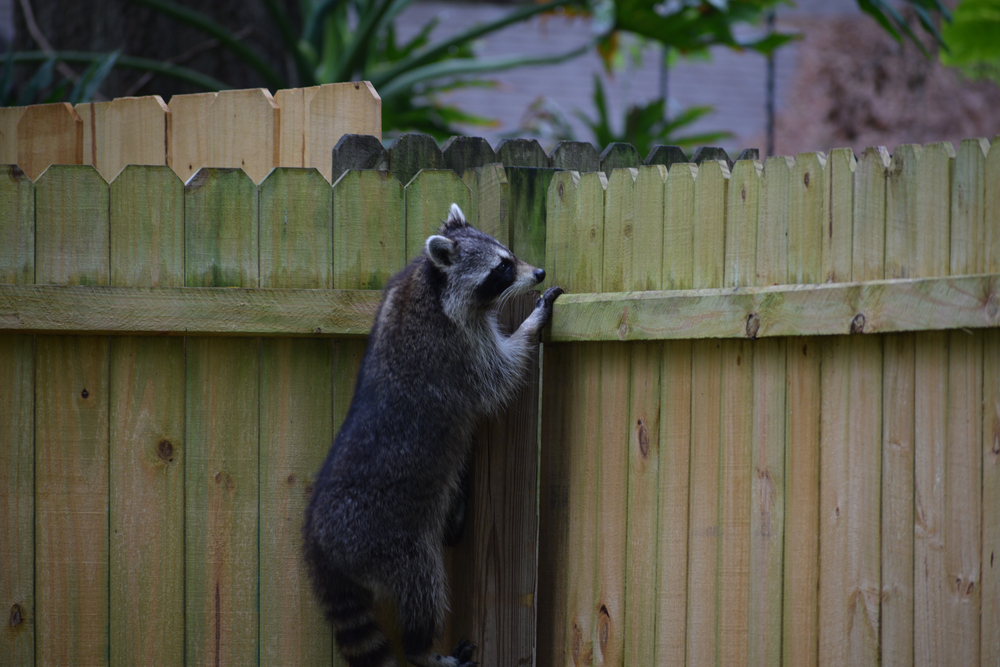
Raccoons are patient creatures, willing to invest time in achieving their goals. Whether it’s accessing a food source or finding shelter, they’re not easily deterred. This tenacity is a key part of their survival strategy, allowing them to thrive in diverse environments.
If a raccoon sets its sights on something in your yard, it’s likely to return multiple times to achieve its goal. This persistence is admirable but can be frustrating if they’re causing trouble. Recognizing their long-game approach can help you devise strategies to protect your property without harming them. It’s about finding a balance between human and raccoon habitats.
